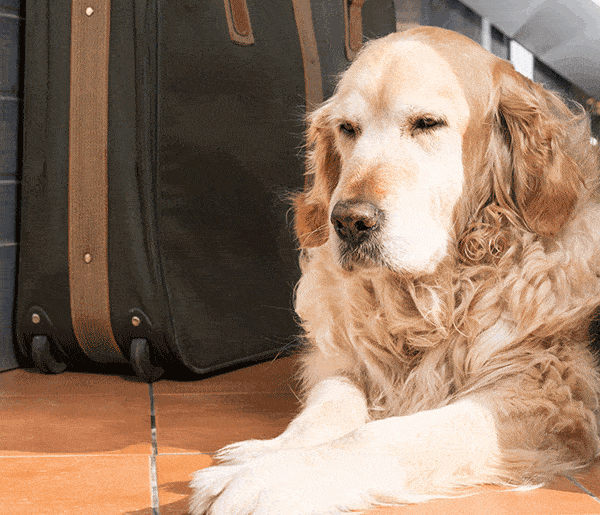When it comes to traveling with senior dogs, the good folks at Muttville Senior Dog Rescue have accumulated a lot of practical wisdom over the years. So we asked them to share it with us. Here are their tips for making your next DogTrek fun for all.
What to Pack
- License, rabies tag and meds.
- Comforts of home: her favorite bed/blanket so they feel cozy and secure in the car and at your destination. The cushier the better for those older joints.
- Extra food, so you don't have to switch to something your dog's tummy isn't used to if you have to extend your trip. Also bring plenty of the water he's used to from home to avoid stomach upset.
- A carrier, even if you don't turn out to need it much. If your dogs get restless in the car, for example, they'll be much safer in their carrier, and you won't be a distracted driver.
- An old towel or cleanup wipes; bring an extra sheet to cover the bedspread at your destination. If your dog has incontinence issues, pack extra pee pads. Especially recommended: reusable/washable hospital underpads.
On the Road
- Take stretching breaks (not just potty breaks) to help everyone feel flexible and fresh when you arrive at your destination.
- Don’t leave your dog in the car, especially when it’s warm out — even for a few minutes. The heat can rise rapidly, and dogs, especially vulnerable seniors, can quickly suffer dehydration and even death.
- Be safe. As much as dogs like to stick their heads out of the car window, beware of road debris and insects flying into their eyes. It's best to keep them inside the car while it's moving.
At Your Destination
- Don't get lost: If you go off leash in an unfamiliar area, put bells on your dog's collar so you can find each other if one of you wanders out of the other's sight.
- Massage! Even if you're not a pro, giving your dog a rubdown in the morning will warm up those muscles and joints so he can enjoy the day. A pre-bedtime massage helps with stiffness from being in a car or plane, and achiness from having an all-day good time.

